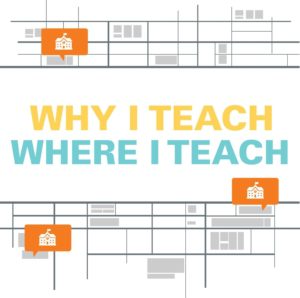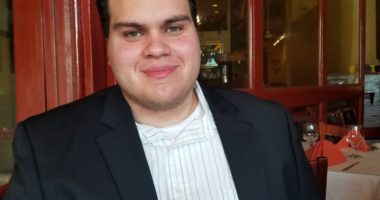Why I Teach Where I Teach: To Fight for Educational Equity
Zachary Wright is the 12th-grade world literature and AP Literature teacher at Mastery Charter School Shoemaker Campus, where he has been since 2010, having taught nearly every senior the school has ever had. Wright was named Philadelphia’s Outstanding Teacher of the Year in 2013, and has participated in the fight for equal education funding by testifying before Philadelphia’s School Reform Commission as well as in the state house in Harrisburg, Pennsylvania. He is also a regular contributor to Education Post.
At Mastery Charter School Shoemaker Campus, I’m not just a teacher; I am a warrior for social justice. Education in America, wherein we have legislated who can learn and with whom one can learn, is inseparable from politics. Education is also, unfortunately, a commodity rather than a social service. Americans are consumers whose wealth is directly associated with our access to school choice and high-quality education. These two combined realities created the unequal distribution of quality education assigned by race and class as suburban White flight concentrated education funding in segregated White suburbs while urban schools serving predominantly minority populations did so while being chronically underfunded.
To teach where I teach in West Philly is to understand these forms of systemic oppression and infuse my lessons with these understandings to best serve my students. My colleagues and I strive to be trauma-informed masters of restorative practices. We combine rigorous lessons with differentiated support systems to ensure our students see accelerated achievement without demonstrating the soft racism of lowering the bar of our expectations.
I teach where I teach because I understand my White privilege and my place within our cultural narrative. I teach where I teach not to satisfy my White guilt, which is pointless and inauthentic, but to fight for educational equity, both at the micro individual student level and at the macro funding level. I teach where I teach to show that strong non-magnet urban schools that serve students from a city’s neighborhoods are possible.
Access to high-quality education is every American’s birthright, but one that far too many of our young people are denied. My classroom is a small front in the war against injustice and our society’s system of racial and class oppression. That is why I teach where I teach.
 This post is a part of an ongoing series, called “Why I Teach Where I Teach,” which asks educators in high-need schools to share what has attracted (and kept) them in the challenging environments they’re in. They share important stories and experiences that should remind us all of the power of strong school leadership, a network of supportive colleagues, and the genuine opportunity to have a say in schoolwide decisions. Listen up! They’re teaching us.
This post is a part of an ongoing series, called “Why I Teach Where I Teach,” which asks educators in high-need schools to share what has attracted (and kept) them in the challenging environments they’re in. They share important stories and experiences that should remind us all of the power of strong school leadership, a network of supportive colleagues, and the genuine opportunity to have a say in schoolwide decisions. Listen up! They’re teaching us.












